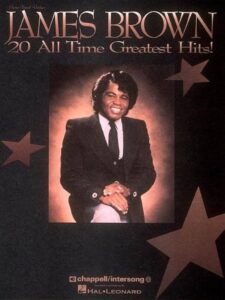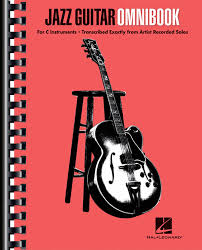Table of Contents
Come join us now, and enjoy playing your beloved music and browse through great scores of every level and styles!
Can’t find the songbook you’re looking for? Please, email us at: sheetmusiclibrarypdf@gmail.com We’d like to help you!
Remembering James Brown (1933-2006)
James Brown (b. May 3, 1933, Barnwell, S.C., U.S.—d. Dec. 25, 2006, Atlanta, Ga.), known as “the Godfather of Soul,” American singer,songwriter, arranger, and dancer, was one of the most important and influential entertainers in 20th-century popular music. His remarkable achievements earned him the sobriquet “the Hardest-Working Man in Show Business.”

Brown was raised mainly in Augusta, Ga., by his great aunt, who took him in at about the age of five when his parents divorced. Growing up in the segregated South during the Great Depression of the 1930s, Brown was so impoverished that he was sent home from grade school for “insufficient clothes,” an experience that he never forgot and that perhaps explains his penchant as an adult for wearing ermine coats, velour jumpsuits, elaborate capes, and conspicuous gold jewelry.

Best Sheet Music download from our Library.
Neighbors taught him how to play drums, piano, and guitar, and he learned about gospel music in churches and at tent revivals, where preachers would scream, yell, stomp their feet, and fall to their knees during sermons to provoke responses from the congregation.
At age 15 Brown and some companions were arrested while breaking into cars. He was sentenced to 8 to 16 years of incarceration but was released after 3 years for good behavior. While at the Alto Reform School, he formed a gospel group. Subsequently, secularized and renamed the Flames (later the Famous Flames), it soon attracted the attention of rhythm-and-blues and rock-and-roll shouter Little Richard, whose manager helped promote the group.
Intrigued by their demo record, Ralph Bass, the artists -and-repertoire man for the King label, brought the group to Cincinnati, Ohio, to record for King Records’ subsidiary Federal. Brown’s first recording, “Please, Please, Please” (1956) eventually sold three million copies and launched his extraordinary career.
Along with placing nearly 100 singles and almost 50 albums on the bestseller charts, Brown broke new ground with two of the first successful “live and in concert” albums—his landmark Live at the Apollo (1963), and his 1964 follow-up, Pure Dynamite! Live at the Royal. During the 1960s, Brown was known as “Soul Brother Number One.”
His hit recordings of that decade have often been associated with the emergence of the black aesthetic and black nationalist movements, especially the songs “Say It Loud—I’m Black and I’m Proud” (1968), “Don’t Be a Drop-Out” (1966), and “I Don’t Want Nobody to Give Me Nothin’ (Open Up the Door, I’ll Get It Myself)” (1969).
In the 1970s, Brown became “the Godfather of Soul,” and his hit songs stimulated several dance crazes and were featured on the soundtracks of a number of “blaxploitation” films (sensational, low-budget, action oriented motion pictures with African American protagonists).
When hip-hop emerged as a viable commercial music in the 1980s, Brown’s songs again assumed center stage as hip-hop disc jockeys frequently incorporated samples (audio snippets) from his records.
He also appeared in several motion pictures, including The Blues Brothers (1980) and Rocky IV (1985), and attained global status as a celebrity, especially in Africa, where his tours attracted enormous crowds and generated a broad range of new musical fusions.

Yet Brown’s life continued to be marked by difficulties, including the tragic death of his third wife, charges of drug use, and a period of imprisonment for a 1988 high-speed highway chase in which he tried to escape pursuing police officers.
Brown’s uncanny ability to “scream” on key, to sing soulful slow ballads as well as electrifying up-tempo tunes, to plumb the rhythmic possibilities of the human voice and instrumental accompaniment, and to blend blues, gospel, jazz, and country vocal styles together made him one of the most influential vocalists of the 20th century.
His extraordinary dance routines featuring deft deployment of microphones and articles of clothing as props, acrobatic leaps, full-impact knee landings, complex rhythmic patterns, dazzling footwork, dramatic entrances, and melodramatic exits redefined public performance within popular music and inspired generations of imitators (not the least Michael Jackson).
His careful attention to every aspect of his shows, from arranging songs to supervising sidemen, from negotiating performance fees to selecting costumes, guaranteed his audiences a uniformly high level of professionalism every night and established a precedent in artistic autonomy.
In the course of an extremely successful commercial career, Brown’s name was associated with an extraordinary number and range of memorable songs, distinctive dance steps, formative fashion trends, and even significant social issues.
A skilled dancer and singer with an extraordinary sense of timing, Brown played a major role in bringing rhythm to the foreground of popular music.
In addition to providing melody and embellishment, the horn players in his bands functioned as a rhythm section (they had to think like drummers), and musicians associated with him (Jimmy Nolan, Bootsy Collins, Fred Wesley, and Maceo Parker) have played an important role in creating the core vocabulary and grammar of funk music. Brown was inducted into the Rock and Roll Hall of Fame in 1986.
Discography
For an extended list of albums, compilations, and charting singles, see James Brown discography on the Wikipedia.
Studio albums
Please Please Please (1958)
Try Me! (1959)
Think! (1960)
The Amazing James Brown (1961)
James Brown and His Famous Flames Tour the U.S.A. (1962)
Prisoner of Love (1963)
Showtime (1964)
Grits & Soul (1964)
Out of Sight (1964)
James Brown Plays James Brown Today & Yesterday (1965)
Mighty Instrumentals (1966)
James Brown Plays New Breed (The Boo-Ga-Loo) (1966)
James Brown Sings Christmas Songs (1966)
Handful of Soul (1966)
James Brown Sings Raw Soul (1967)
James Brown Plays the Real Thing (1967)
Cold Sweat (1967)
I Can't Stand Myself When You Touch Me (1968)
I Got the Feelin' (1968)
James Brown Plays Nothing But Soul (1968)
Thinking About Little Willie John and a Few Nice Things (1968)
A Soulful Christmas (1968)
Say It Loud – I'm Black and I'm Proud (1969)
Gettin' Down to It (1969)
The Popcorn (1969)
It's a Mother (1969)
Ain't It Funky (1970)
Soul on Top (1970)
It's a New Day – Let a Man Come In (1970)
Hey America (1970)
Sho Is Funky Down Here (1971)
Hot Pants (1971)
There It Is (1972)
Get on the Good Foot (1972)
Black Caesar (1973)
Slaughter's Big Rip-Off (1973)
The Payback (1973)
Hell (1974)
Reality (1974)
Sex Machine Today (1975)
Everybody's Doin' the Hustle & Dead on the Double Bump (1975)
Hot (1976)
Get Up Offa That Thing (1976)
Bodyheat (1976)
Mutha's Nature (1977)
Jam 1980's (1978)
Take a Look at Those Cakes (1978)
The Original Disco Man (1979)
People (1980)
Soul Syndrome (1980)
Nonstop! (1981)
Bring It On! (1983)
Gravity (1986)
I'm Real (1988)
Love Over-Due (1991)
Universal James (1993)
I'm Back (1998)
The Merry Christmas Album (1999)
The Next Step (2002)Filmography
The T.A.M.I. Show (1964) (concert film) – himself (with the Famous Flames)
Ski Party (1965) – himself (with the Famous Flames)
James Brown: Man to Man (1968) (concert film) – himself
The Phynx (1970) – himself
Black Caesar (1973) (soundtrack only)
Slaughter's Big Rip-Off (1973) (soundtrack only)
The Blues Brothers (1980) – Reverend Cleophus James
Doctor Detroit (1983) – himself, the Bandleader
Rocky IV (1985) – The Godfather of Soul
Miami Vice (1987) – Lou De Long
James Brown: Live in East Berlin (1989) – himself
The Simpsons (1993) – himself (voice)
When We Were Kings (1996) (documentary) – himself
Duckman (1997) – Hostage Negotiator (voice)
Soulmates (1997) – himself
Blues Brothers 2000 (1998) – Reverend Cleophus James
Holy Man (1998) – himself
Undercover Brother (2002) – himself
The Tuxedo (2002) – himself
The Hire: Beat the Devil (2002) (short film) – himself
Paper Chasers (2003) (documentary) – himself
Soul Survivor (2003) (documentary) – himself
Sid Bernstein Presents (2005) (documentary) – himself
Glastonbury (2006) (documentary) – himself
Life on the Road with Mr. and Mrs. Brown (2007) (documentary; release pending) – himself
Live at the Boston Garden: April 5, 1968 (2008) (concert film) – himself
I Got The Feelin': James Brown in the '60s, three-DVD set featuring Live at the Boston Garden: April 5, 1968, Live at the Apollo '68 (DVD version of James Brown: Man to Man), and the documentary The Night James Brown Saved Boston
Soul Power (2009) (documentary) – himself (archive footage)
Get on Up (2014) – himself (archive footage)Please, subscribe to our Library.
If you are already a subscriber, please, check our NEW SCORES’ page every month for new sheet music. THANK YOU!
James Brown Greatest Hits Full Album – Best Songs Of James Brown

Browse in the Library:
Or browse in the categories menus & download the Library Catalog PDF:
